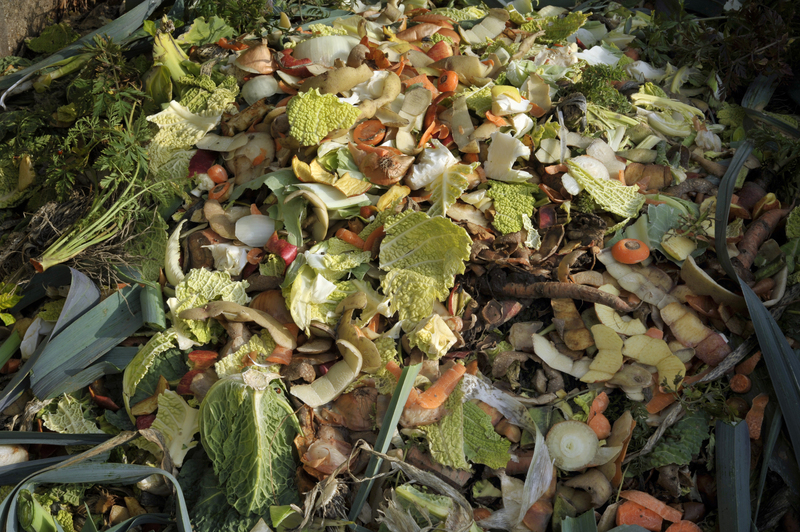Get Rid of Bulky Waste Items Without Breaking the Bank
Disposing of large or bulky waste items can be a daunting and expensive task. Whether you are moving homes, renovating, decluttering, or simply upgrading your furniture, getting rid of oversized junk often carries hefty fees. However, with careful planning and a little creativity, you can get rid of bulky waste items without breaking the bank. In this comprehensive guide, we'll delve into cost-effective methods, sustainable strategies, and smart tips for disposing of large refuse responsibly and affordably.

What is Bulky Waste and Why Does Disposal Matter?
Bulky waste refers to items that are too large to be disposed of with regular household garbage. Some examples include:
- Old furniture (sofas, mattresses, wardrobes)
- Large appliances (fridges, washing machines, stoves)
- Carpets and rugs
- Garden debris (branches, shrubs, fencing)
- Large electronics (televisions, computers)
- Construction waste (bathtubs, doors, windows)
Proper disposal of these items is crucial for several reasons:
- Environmental safety: Many bulky items contain materials that can be hazardous if not handled correctly.
- Community regulations: Most cities prohibit dumping large waste items at the roadside without prior arrangement.
- Space preservation: Avoid unnecessary clutter in your home, yard, or community space.
Cost-Effective Strategies to Dispose of Bulky Waste Items
1. Take Advantage of Free Municipal Collection Services
Many cities and local councils offer periodic free bulky item collection. Check with your municipality about:
- Scheduled monthly or quarterly pickup days
- Eligibility and the types of items accepted
- Rules about placing items curbside (size limits, packaging guidelines, etc.)
*Tip:* Book your spot well in advance, as slots fill up quickly, especially during peak moving or renovation seasons.
2. Drop-Off at Local Recycling Centers
If your schedule doesn't match municipal pickups, consider loading your large waste items into a truck or van and taking them directly to a recycling center or public waste facility. Some centers accept:
- Appliances and electronics (with fees waived for city residents)
- Metal furniture or parts (which can even earn you scrap value!)
- Yard waste or wood debris
Before visiting, research accepted items, fees, opening hours, and any ID requirements.
3. Sell or Donate Gently Used Items
Why pay to dispose of an item someone else might need? Try to rehome unwanted bulky pieces by:
- Listing on classified websites such as Craigslist, Facebook Marketplace, or Freecycle
- Donating to local charities or thrift shops
- Contacting social organizations or shelters (some offer free pickup for large donations)
*Pro tip:* Clean items and provide detailed photos and measurements to increase your chances of a quick, hassle-free pickup.
4. Host a Garage or Curbside Giveaway
One person's trash is another person's treasure! Organize a yard sale or place items at the curb labeled as "Free" (if permitted in your area). Many neighborhoods have swap or bulk waste amnesty days.
5. Rent a Shared Dumpster or Skip Bin
Renting a dumpster can be costly for a single household, but consider shared rentals with neighbors or friends during community clean-up projects. This method helps offset costs and ensures everyone gets rid of bulky waste easily.
Sustainable Ways to Get Rid of Large Bulky Waste
Affordability doesn't have to compromise sustainability. Here's how to minimize your environmental impact:
1. Upcycle or Repurpose Old Items
Unleash your creativity! Repurpose furniture and fixtures into:
- Outdoor planters made from old bathtubs or dressers
- Unique shelving units from drawers or doors
- Garden compost bins from wooden pallets
*Look for DIY inspiration online and turn your junk into useful treasures!*
2. Recycle E-Waste Properly
Electronics contain valuable (and sometimes hazardous) materials. Don't throw them in a landfill! Most communities host e-waste collection events, or have designated drop-off locations where you can dispose of:
- TVs
- Computers
- Monitors
- Small appliances
This ensures harmful components are processed safely and valuable resources are recovered.
3. Compost or Mulch Organic Garden Waste
Branches, leaves, and natural debris from yard cleanup often qualify as bulky waste. Convert them into valuable mulch or compost for your garden instead of paying for disposal!
Affordable Bulky Waste Removal Services
Sometimes professional help is necessary, especially for very heavy or hazardous items. Here's how to minimize expense:
1. Get Several Quotes
Don't settle for the first removal service you find. Compare at least 3-4 licensed providers for:
- Transparent pricing and no hidden fees
- Inclusion of labor and disposal charges
- Disposal methods (are they eco-friendly?)
2. Inquire About Off-Peak Discounts
Some bulk waste removal companies offer discounts for mid-week, off-season, or flexible scheduling clients. Always ask!
3. Check for Community Grants or Support
Certain local councils and non-profits run grant programs or financial assistance to help seniors, low-income households, or those unable to move items themselves.
Money-Saving Tips to Get Rid of Bulky Waste Items
- Plan ahead to coincide with free local collection events.
- Break down items (where safe) to minimize space and fit more into bins or vehicles.
- Avoid last-minute disposal which often incurs premium service rates.
- Enlist friends or family for heavy lifting and transport to avoid labor charges.
- Share costs by organizing group cleanouts with neighbors.
- Negotiate! Many removal companies are open to price discussion, especially if you bundle items or pay cash.
Common Mistakes to Avoid When Disposing Bulky Items
To truly get rid of bulky waste without breaking the bank, steer clear of the following errors:
- Dumping illegally: Fines for fly-tipping far exceed any legitimate disposal costs.
- Ignoring recycling options: Sending recyclable goods to landfill is both costly and environmentally damaging.
- Overestimating professional needs: Many items, if safe, can be managed without paid services.
- Neglecting to check local regulations: Some items require special handling or can't be accepted curbside.

Frequently Asked Questions About Bulky Waste Disposal
Can I leave bulky waste items at the curb?
Usually, only if you've pre-arranged a collection with your local municipality. Random dumping is not permitted.
Are there items that cannot be collected by city services?
Yes. Hazardous materials (like paint, asbestos, chemicals), certain e-waste, and automotive parts may require specialist disposal. Always check your local council's rules.
What if I don't have a vehicle to transport bulk items?
Consider renting a small moving van, using a ride-sharing delivery service, or partnering with friends. In some cases, charities picking up donations will collect directly from your home.
Are there "free days" for community recycling?
Many areas organize annual "spring clean" or bulk recycling events where you can drop off bulky items at no charge. Watch for public notices or sign up for city newsletters!
Final Thoughts: Disposing of Bulky Items on a Budget
Getting rid of large household waste items affordably is all about strategy. With a little preparation, you can save money, help the environment, and even make someone else's day by giving your unwanted goods a second life. Remember to:
- Explore all free and low-cost options first
- Take advantage of community resources and events
- Think sustainably--donate, recycle, upcycle before you pay for landfill
- Stay organized and avoid last-minute disposal to keep costs low
You can efficiently get rid of bulky waste items without breaking the bank by following these practical, budget-friendly steps. Not only will your space feel lighter and cleaner, but your wallet will thank you too!



